- Home
- Helen Dunmore
Out of the Blue: Poems 1975-2001 Page 14
Out of the Blue: Poems 1975-2001 Read online
Page 14
the cash and the baseball cap
shorts that looked nice in the shop
then two days’ indoor bicycling
to get his legs ready.
He plans to learn something in lonely.
Bits of the language, new dishes.
He would like to try out a sport –
jet-ski maybe, or fishing.
You are meant to be alone, fishing.
There are books about it at the airport.
In the departure lounge, he has three hours
to learn to harpoon a marlin
and to overhear the history
of that couple quarrelling
about Bourbon and Jamesons –
which is the best way to have fun.
He is starting to like the look of lonely
with its steady climate, its goals
anyone can touch. He settles
for drinking lots of Aqua Libra
and being glad about Airmiles
as the Australian across the aisle
plugs into Who’s That Girl?
Poem in a Hotel
Waiting. I’m here waiting
like a cable-car caught in a thunderstorm.
At six someone will feed me, at seven
I’ll stroll and sit by the band.
I have never seen so many trombones
taking the air, or so many mountains.
Under them there are tunnels
to a troll’s salt-garden.
The lake is a dirty thumb-mark.
If nowhere has a middle
this lake is its navel,
pregnant with sickeningly large carp.
Bent as if travelling backwards, the birches
wipe the cheeks of 29 parasols.
A little girl scythes at her shuttlecock:
4, 6, 7 strokes –
there are 29 bright parasols
outfacing the sun
and the little girl wears a red cap
to blunt her vision.
I lie through half a morning
with my eyelids gummed down,
neither rising nor falling
until the next meal comes round.
I keep a straw in my mouth
so I can breathe,
I am drinking Sprite in a hotel,
I am a carp in the reeds.
The Bike Lane
Of course they’re dead, or this is a film.
Along the promenade the sun
moves down council-painted white lanes –
these are for cycling. On the other hand
the sea is going quietly out to France,
taking its time. If the cliffs are white,
iron stanchions are planted in them
so a bleed of rust can be seen
by the army rafting its way in
on lilos and pedalos. Professional cyclists
walk with one hand on the saddle,
waiting to be told to put on
red vests which show up in the race.
The aisle of the falling tide
squints to infinity, the bike-lane
is much in need of repainting
like the smile of the sea-front towards France.
In the less-than-shelter of the beach huts
two people I love are waiting
with as much infinity in their laps
as you can catch with a red vest on.
The cyclists flash past them –
one turns his keyed-up white face
but they are dead and this is a film.
Drink and the Devil
On his skin the stink
of last night turned
to acetaldehyde.
What comes through the curtains must be light.
It combs the shadows of his brain
and frightens him.
Things not to think of crowd in.
The things she said
as if sick of saying them.
The jumpy blanks in what happened.
The way he skidded and there
was the kid looking,
staring through the bars of the landing
so I shouted Monkey, Monkey
and danced but he wouldn’t laugh.
Or was that in the club?
I would never harm a hair
on the head of him.
If she doesn’t know that she knows nothing.
Ahvenanmaa
Breast to breast against the azaleas
they pitch, father and daughter,
the sun throws itself down
golden, glittering,
pale orange petals clutter their hair
as he catches her shoulders,
braced, they grapple and bruise
among the perfumed azaleas.
The flowers loll out their tongues,
tigers on dark stems
while breast to breast against the azaleas
they pitch, father and daughter.
The ferry slides between islands.
Pale and immediate, the sun rises.
The hull noses white marker-posts
glittering in summer water –
here, now, the channel deepens,
the sky darkens. Too cold in her dress
the girl scutters. Engine vents veil
steam while rain hides Ahvenanmaa.
Rubbing Down the Horse
The thing about a saddle is that second
you see it so closely, sweat-grains
pointing the leather,
pulled stitching and all, and the pommel gone black
and reins wrapped over themselves.
You see it so closely
because you have one foot in the stirrup
and someone else has your heel in his hand.
Your heel in someone else’s hand
that second before they lift you, your face
turned to the saddle, the sweat marks
and smell of the horse, those stitches pulling
the way they tug and tear in your flesh
when you lie there in pain,
the hooves of it cutting,
trying to pin down the place, the time.
The nurse has your heel in her hand
yellow and still, already tender
though on Friday you were walking.
She is taking a pinprick
or else slowly, bit by bit, washing
your wrapped body from the heels upward
and talking, always talking.
She might want to ask someone
what way you would move when sunlight
filled the cobbles like straw,
or how without looking at it
you’d kick in place a zinc bucket
then bend and rub down the horse.
You came back to life in its sweetness
You came back to life in its sweetness,
to keen articulations of the knee joint,
to slow replays of balls kicking home
and the gape of the goalkeeper.
You came back to life in its sweetness,
to the smell of sweat, the night-blue
unwrinkling of the iris,
and going from table to table at parties.
Perhaps you’ll waltz
on some far-off anniversary
with an elderly woman
who doesn’t exist yet,
and you, you’ll forget,
for now we’re counting in years,
where we were counting in hours.
Heimat
Deep in busy lizzies and black iron
he sleeps for the Heimat,
and his photograph slips in and out of sight
as if breathing.
There are petals against his cheeks
but he is not handsome.
His small eyes search the graveyard fretfully
and the flesh of his cheeks clouds
the bones of heroism.
No one can stop him being young
and he is so tired of being young.
He would like to feel pain in his joints
as he wanders down to Hübers,
but he’s here as always,
always on his way back from the photographer’s
in his army collar
with a welt on his neck rubbed raw.
The mountains are white and sly as they always were.
Old women feed the graveyard with flowers,
clear the glass on his photograph
with chamois leathers,
bend and whisper the inscription.
They are his terrible suitors.
In the Desert Knowing Nothing
Here I am in the desert knowing nothing,
here I am knowing nothing
in the desert of knowing nothing,
here I am in this wide
desert long after midnight
here I am knowing nothing
hearing the noise of the rain
and the melt of fat in the pan
here is our man on the phone knowing something
and here’s our man fresh from the briefing
in combat jeans and a clip microphone
testing for sound,
catching the desert rain, knowing something,
here’s the general who’s good with his men
storming the camera, knowing something
in the pit of his Americanness
here’s the general taut in his battledress
and knowing something
here’s the boy washing his kit in a tarpaulin
on a front-line he knows from his GCSE
coursework on Wilfred Owen
and knowing something
here is the plane banking,
the go go go of adrenalin
the child melting
and here’s the grass that grows overnight
from the desert rain, feeling for him
and knowing everything
and here I am knowing nothing
in the desert of knowing nothing
dry from not speaking.
Poem on the Obliteration of 100,000 Iraqi Soldiers
They are hiding away in the desert,
hiding in sand which is growing warm
with the hot season,
they are hiding from bone-wagons
and troops in protective clothing
who will not look at them,
the crowds were appalled on seeing him,
so disfigured did he look
that he seemed no longer human.
That killed head straining through the windscreen
with its frill of bubbles in the eye-sockets
is not trying to tell you something –
it is telling you something.
Do not look away,
permit them, permit them –
they are telling their names to the Marines
in one hundred thousand variations,
but no one is counting,
do not turn away,
for God is counting
all of us who are silent
holding our newspapers up, hiding.
The Yellow Sky
That morning when the potato tops rusted,
the mangle rested and the well ran dry
and the turf house leaned like a pumpkin
against the yellow sky
there was a fire lit in the turf house
and a thin noise of crying,
and under the skinny sheets a woman
wadded with cloth against bleeding.
That morning her man went to the fields
after a shy pause at the end of her bed,
trying not to pick out the smell of her blood,
but she turned and was quiet.
All day the yellow sky walked on the turves
and she thought of things heavy to handle,
her dreams sweated with burdens,
the bump and grind of her mangle.
All day the child creaked in her cradle
like a fire as it sinks
and the woman crooned when she was able
across the impossible inches.
At that moment at the horizon there came a horseman
pressed to the saddle, galloping, galloping
fast as the whoop of an ambulance siren –
and just as unlikely. What happened
was slower and all of a piece.
She died. He lived (the man in the fields),
the child got by on a crust
and lived to be thirty, with sons. In the end
we came to be born too. Just.
Getting the Strap
The Our Father, the moment of fear.
He dodged round us and ran,
but was fetched back again
to stand before us on the platform.
The Our Father, the moment of fear
as the fist gripped and he hung
from the headmaster’s arm,
doubling on the spot like a rabbit
blind for home.
The Our Father, the moment of fear.
The watch he’d stolen was given
back to its owner, dumb
in the front row, watching the strapping.
The Our Father, the moment of fear.
The strap was old and black and it cracked
on belly buttock and once across his lip
because he writhed and twisted.
He would not stand and take it.
The Our Father, the moment of fear.
There was a lot of sun
leaking through churchy windows
onto a spurt of urine.
After an age of watching
we sang the last hymn.
Adders
This path is silky with dust
where a lizard balances across bracken fronds
and a brown butterfly opens wide
to the stroke of the sun,
where a trawler feels its way along the sandbanks
and two yachts, helplessly paired, tack far out
like the butterflies which have separated and gone quiet.
A wild damson tree bulges with wasps
among heaps that are not worth picking,
and there a branch splits white with the lightning
of too heavy a harvest.
The lizard is gone in a blink.
Its two-pronged tail – half withered, half growing –
flicks out of the sun.
For a moment the pulse in its throat
keeps the grass moving.
A grass-bound offering of yarrow,
rosebay willow herb and veined convolvulus
lies to one side of the path
as if someone’s coming back.
Instead, the sift of the dust –
beneath the bracken these hills are full of adders.
The conception
In the white sheets I gave you
everything I am capable of –
at the wrong time
of the month we opened
to the conception,
you were dewed like a plum
when at two a.m.
you reached under the bed
for a drink of water adrift
in yesterday’s clothes,
our sheets were a rope
caught between our thighs,
we might easily have died
but we kept on climbing.
Scan at 8 weeks
The white receiver
slides up my vagina,
I turn and you’ve come,
though I’m much too old for this
and you’re much too young.
That’s the baby
says the radiographer.
You are eight millimetres long
and pulsing,
bright in the centre of my much-used womb
which to my astonishment
still looks immaculate.
You are all heart,
I w
atch you tick and tick
and wonder
what you will come to,
will this be our only encounter
in the white gallery of ultrasound
or are you staying?
One day will we talk about this
moment when I first saw your spaceship
far off, heading for home?
Pedalo
She swam to me smiling, her teeth
pointed by salt water, her mouth
a rock-pool’s spat-out wine gum,
and then the tide flung
over her threshold,
and her lips moved.
The valve of her mouth was plumed
with salt-sweet tendrils,
sea danced from her pelt
of oil and muscle,
she rested her elbows on my pedalo
and there she hung
browning the pads of her shoulders
like a snake in the sun.
On shore thunderhead pines
drifted and swelled
like August umbrellas
stunning the fronts of hotels.
The sharp tide rinsed
over her threshold

 The Ingo Chronicles: Stormswept
The Ingo Chronicles: Stormswept The Deep
The Deep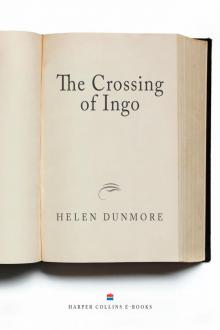 The Crossing of Ingo
The Crossing of Ingo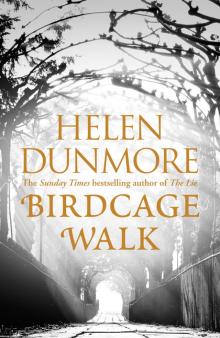 Birdcage Walk
Birdcage Walk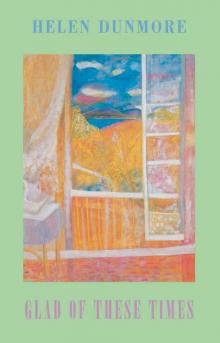 Glad of These Times
Glad of These Times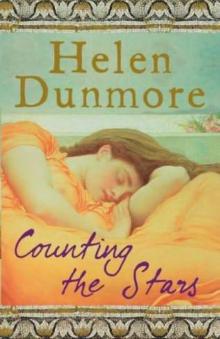 Counting the Stars
Counting the Stars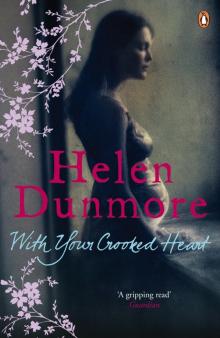 With Your Crooked Heart
With Your Crooked Heart Burning Bright
Burning Bright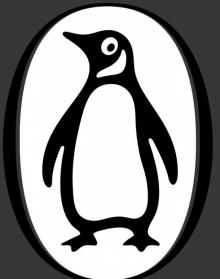 House of Orphans
House of Orphans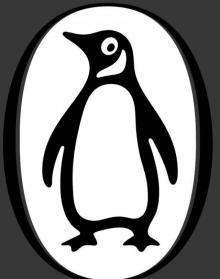 Mourning Ruby
Mourning Ruby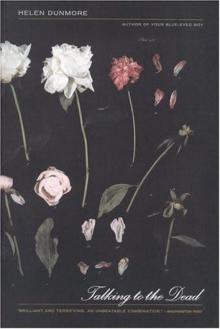 Talking to the Dead
Talking to the Dead Exposure
Exposure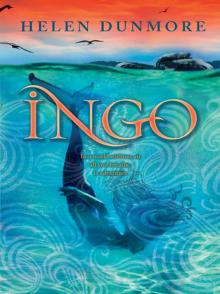 Ingo
Ingo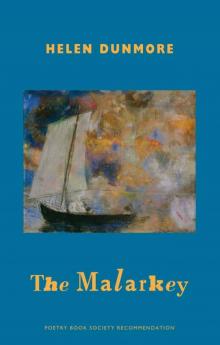 The Malarkey
The Malarkey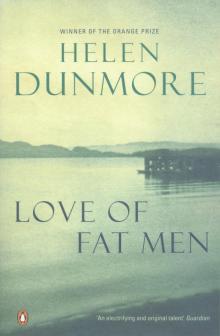 Love of Fat Men
Love of Fat Men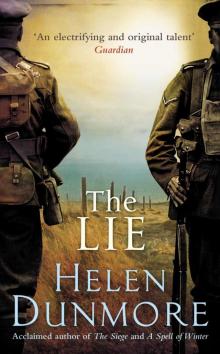 The Lie
The Lie The Siege
The Siege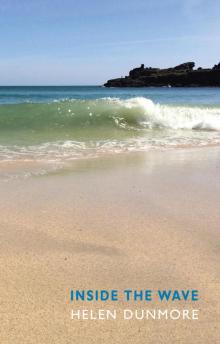 Inside the Wave
Inside the Wave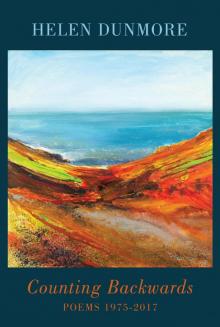 Counting Backwards
Counting Backwards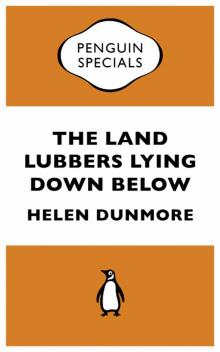 The Land Lubbers Lying Down Below (Penguin Specials)
The Land Lubbers Lying Down Below (Penguin Specials)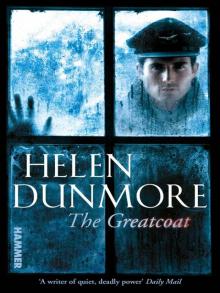 The Greatcoat
The Greatcoat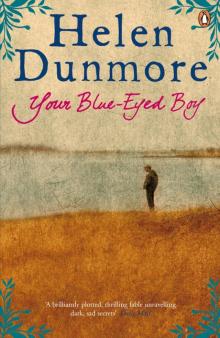 Your Blue Eyed Boy
Your Blue Eyed Boy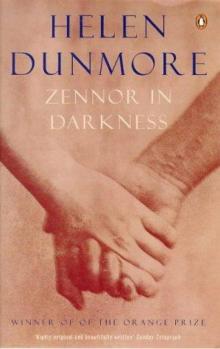 Zennor in Darkness
Zennor in Darkness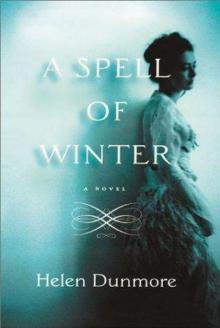 Spell of Winter
Spell of Winter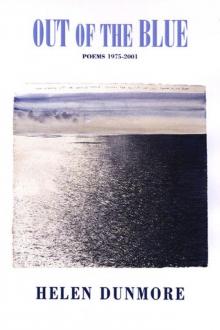 Out of the Blue: Poems 1975-2001
Out of the Blue: Poems 1975-2001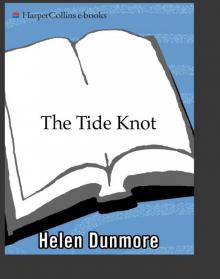 Tide Knot
Tide Knot The Betrayal
The Betrayal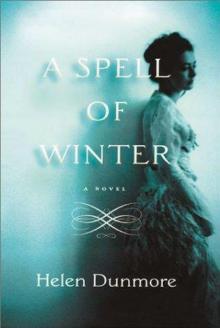 A Spell of Winter
A Spell of Winter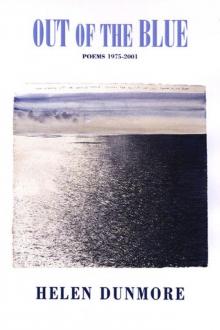 Out of the Blue
Out of the Blue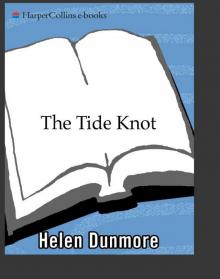 The Tide Knot
The Tide Knot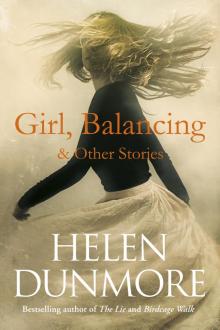 Girl, Balancing & Other Stories
Girl, Balancing & Other Stories Betrayal
Betrayal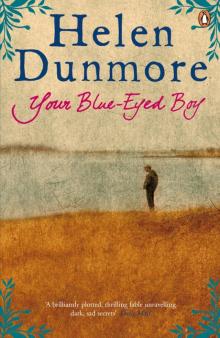 Your Blue-Eyed Boy
Your Blue-Eyed Boy